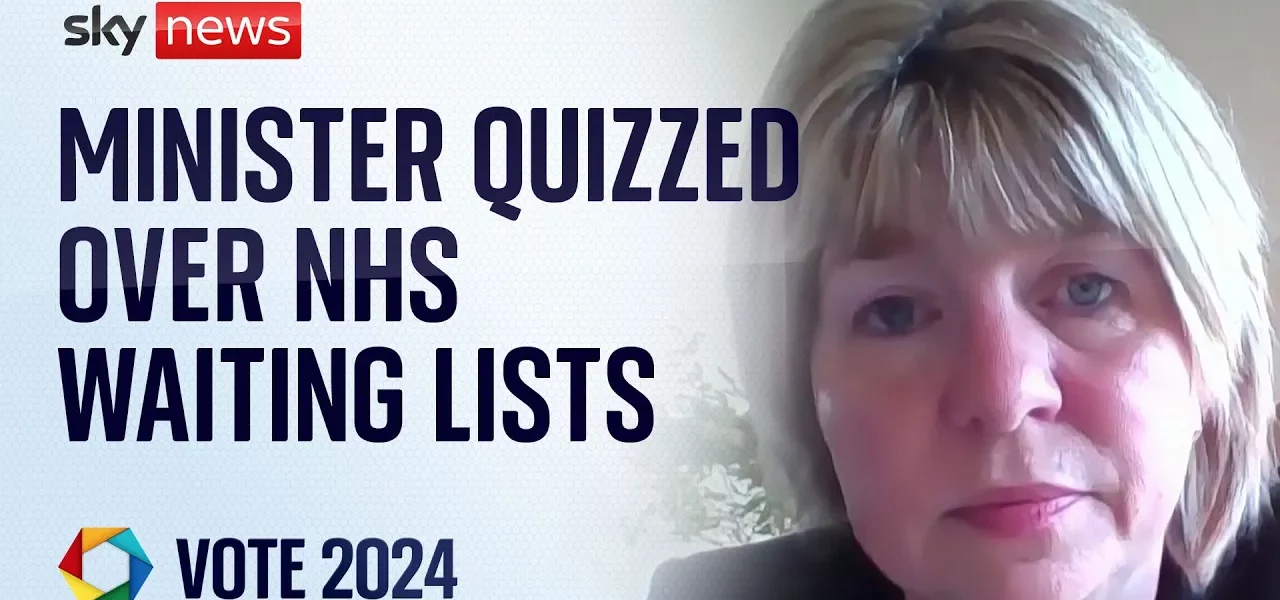The State of the NHS 14 Years On: An In-Depth Analysis

This article provides a comprehensive look at the National Health Service (NHS) in the UK, examining the impact of political decisions, recent improvements, and future goals in healthcare provision. We discuss the evolution of waiting lists, the introduction of new services, and the ongoing challenges faced by the NHS.
Introduction
The National Health Service (NHS) has been a cornerstone of British society since its inception, providing healthcare services to millions. However, the state of the NHS has been a contentious topic in political discourse, particularly in light of the challenges posed by the COVID-19 pandemic. This article seeks to explore the current state of the NHS, particularly in relation to government policies, patient care outcomes, and the effectiveness of recent initiatives aimed at improving healthcare services.
The Impact of Political Decisions on the NHS
The NHS’s performance has been heavily influenced by the political landscape over the past 14 years, especially regarding the policies implemented by the Conservative government. Since 2010, the NHS has faced numerous challenges, including rising waiting lists and financial constraints. However, proponents argue that recent investments have led to improvements.
Waiting Lists and Patient Care
Waiting lists for hospital treatment have nearly doubled since 2010, raising concerns about access to timely care. Key points include:
- Increased demand for healthcare services post-pandemic.
- Improvements in elective surgery recovery plans.
- Recent data showing a reduction of 200,000 patients from waiting lists over the past six months.
Improvements in Healthcare Facilities
Investment in new surgical hubs and community diagnostic centers has been crucial. Recent achievements include:
- Opening over 100 surgical hubs.
- Establishing rapid diagnostic centers to facilitate early diagnosis.
- Enhancing infrastructure at existing hospitals, which were previously at risk of closure.
Recent Developments in Cancer Care
One of the critical areas of focus in the NHS has been cancer treatment and outcomes. The advancements in diagnosis and treatment protocols have shown promising results.
Early Diagnosis Initiatives
Efforts to improve early diagnosis of cancer are yielding positive outcomes. Notable initiatives include:
- The introduction of HPV vaccination programs aimed at eradicating cervical cancer.
- The upcoming recruitment for a prostate cancer screening trial.
- Enhanced lung cancer screening programs that have increased early-stage diagnoses.
Statistics and Outcomes
Comparative statistics reveal significant improvements in cancer survival rates:
- 80% of lung cancer cases are now diagnosed at stages one or two.
- Cervical cancer rates are declining due to vaccination efforts.
- Overall, cancer treatment outcomes have improved compared to a decade ago.
Challenges Faced by the NHS
Despite progress, the NHS continues to grapple with various challenges that affect its overall performance and public perception.
Trust in Government Promises
The credibility of governmental pledges, such as the promise to build 40 new hospitals, has come under scrutiny. Important considerations include:
- Only 100 rapid diagnostic centers and surgical hubs have been established, raising questions about the fulfillment of promises.
- Public skepticism regarding the timeline for new GP services and hospital constructions.
Patient Experiences and Access to Care
Patient experiences vary widely, with many constituents expressing challenges in accessing timely GP appointments and facing extended waiting times. This highlights the need for:
- Continued investment in healthcare infrastructure.
- Increased staffing levels to meet patient demand.
- Improved communication between healthcare providers and patients.
Conclusion
In conclusion, while the NHS has made significant strides in improving patient care and outcomes over the past 14 years, it continues to face challenges that require ongoing attention and investment. The focus on early diagnosis, the establishment of new healthcare facilities, and the reduction of waiting times are all positive developments, yet public trust and satisfaction remain critical metrics for future success. It is essential for the government to fulfill its promises and continue investing in the NHS to ensure that it meets the needs of the population effectively. For more information on healthcare policies and their impact, check out our related articles on healthcare policies and the future of the NHS.
“`




